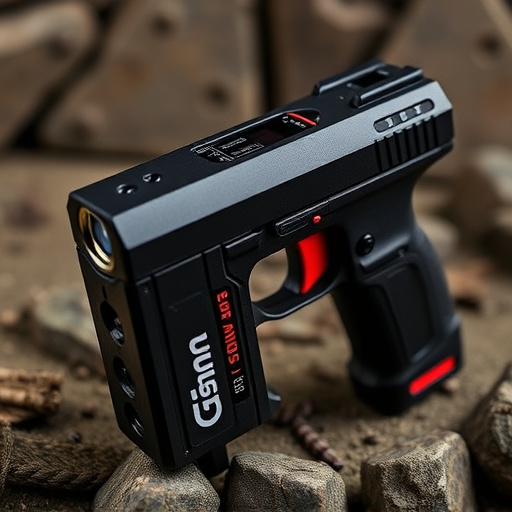Understanding Taser ownership laws is crucial before buying a Multiguard Stun Gun for personal safety. US regulations vary widely from state to state, with age requirements (often 21+), background checks, and specific training or certifications needed in some areas. Storage and carry restrictions, including permitted locations and methods, also differ. Navigating these rules is essential for legal ownership and responsible use of a Multiguard Stun Gun. Always check your state's laws to ensure full compliance.
“Unraveling the legal landscape of civilian taser ownership, this comprehensive guide offers a detailed look at state-by-state regulations. With a focus on the Multiguard Stun Gun, we explore how laws vary, affecting your ability to legally acquire and possess these devices. From understanding the basics of taser functionality to delving into permits and licenses, this article equips readers with knowledge crucial for navigating civilian taser ownership requirements. Discover the intricacies and ensure compliance with your state’s regulations.”
- Understanding Taser Ownership: A Multiguard Stun Gun Perspective
- State-by-State Laws: A Comprehensive Overview
- Legal Requirements for Civilian Possession of Tasers
- Permits and Licenses: Unlocking the Process
- Potential Restrictions and Exceptions: What You Need to Know
Understanding Taser Ownership: A Multiguard Stun Gun Perspective
Understanding Taser ownership is crucial in navigating the legal landscape surrounding personal protection devices like the Multiguard Stun Gun. In most states, civilians can legally own a stun gun under specific circumstances, but regulations vary widely. The Multiguard Stun Gun, known for its reliability and compact design, is a popular choice among individuals seeking non-lethal self-defense options. To legally acquire one, prospective owners must typically meet certain criteria, such as age restrictions (often 18 or older), completion of a safety training course, and passing a background check.
State laws governing Multiguard Stun Gun ownership often include provisions for restricted areas where stun guns are prohibited, such as schools, government buildings, or aircraft. Some states also mandate storage requirements, mandating that stun guns be kept in a locked case or safe to prevent unauthorized access. Understanding and adhering to these regulations is essential for responsible Multiguard Stun Gun ownership, ensuring compliance with local laws while prioritizing safety.
State-by-State Laws: A Comprehensive Overview
In the United States, the legal landscape surrounding civilian ownership of tasers (multiguard stun guns) varies significantly from state to state. Understanding these laws is crucial for individuals considering the purchase and possession of such devices for personal protection. Some states have relatively lenient regulations, allowing qualified citizens to own tasers with minimal restrictions. These areas often require a permit or license for taser ownership, which may involve background checks and training in proper use.
On the other hand, several states have implemented stricter measures, limiting or prohibiting civilian access to tasers altogether. Laws in these jurisdictions frequently cite public safety concerns as the primary reason for such restrictions. It’s essential for prospective buyers to familiarize themselves with their state-specific regulations before acquiring a multiguard stun gun, ensuring compliance and avoiding legal repercussions.
Legal Requirements for Civilian Possession of Tasers
In many states across the US, the legal requirements for civilians to possess a taser, often referred to as a multiguard stun gun, vary widely. Generally, individuals seeking to own such non-lethal self-defense weapons must be at least 21 years of age and pass a background check. Some states mandate specific training or certification courses for responsible use and handling of stun guns.
Additionally, state laws dictate where and how these devices can be carried. This may include restrictions on open or concealed carry, limitations on locations like schools, government buildings, or airports, and requirements to store the device in a locked case or safe when not in use. Understanding these legal parameters is crucial before considering the acquisition of a multiguard stun gun for personal protection.
Permits and Licenses: Unlocking the Process
In many states, acquiring a civilian taser involves more than just purchasing the device; it requires navigating a process that includes permits and licenses. This often begins with understanding local and state regulations, which can vary significantly. For instance, some areas mandate specific training and certifications before allowing individuals to possess a multiguard stun gun. These programs typically cover safe handling practices, legal implications, and self-defense techniques.
After completing the necessary education, applicants may need to secure a permit or license from relevant authorities. The requirements hereof differ across jurisdictions but often include background checks, proof of identity, and possibly even interviews. Once approved, these permits enable responsible individuals to legally carry their multiguard stun guns for personal protection or other permitted uses as outlined by state law.
Potential Restrictions and Exceptions: What You Need to Know
When considering civilian taser ownership, it’s crucial to be aware of potential restrictions and exceptions that vary across state laws. While some states allow individuals to own stun guns or multiguard stun guns for self-defense purposes, there may be age limitations, background check requirements, and specific use cases that are permitted. For instance, some states restrict the use of tasers only to law enforcement or authorized personnel under certain circumstances.
Additionally, certain exceptions might apply, such as in situations where an individual has a valid concealed carry permit for a stun gun, or when the taser is used for protective purposes within one’s own property. It’s essential to review your state’s specific laws to understand these restrictions and exceptions fully, ensuring compliance with local regulations before purchasing a civilian taser like a multiguard stun gun.
In conclusion, understanding the nuances of civilian taser ownership, as illuminated by the comprehensive guide above—including insights from a multiguard stun gun perspective—is crucial for navigating state-by-state laws. Whether you’re considering legal requirements, permit processes, or potential restrictions, being well-informed is key to ensuring compliance and promoting safety. Remember that each state has its own regulations, so always verify local laws before pursuing taser ownership.
